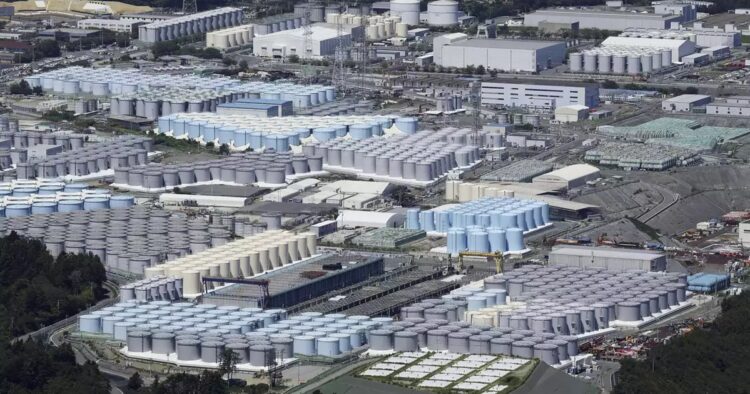In a major setback to the ongoing release of treated Fukushima Nuclear water, a worker at Japan’s Fukushima nuclear plant has been found to have high radiation levels in his nose. This major discovery brings forth the challenges and risks involved in the decommissioning process of the plant, which had faced a major nuclear accident in 2011.
According to Tokyo Electric Power (Tepco), the employee might have had their full-face mask after the completion of their task, exposing them to potential radioactive materials. However, Tepco assured that as of now, the worker is not facing any immediate health issues and there are no signs of internal contamination, as revealed in the comprehensive full-body scan.
This case accounts for the second such incident in the past three months, after four workers were splashed with water containing radioactive materials in October. Two of them were immediately hospitalized as a precaution.
Japan had begun releasing treated water from the Fukushima Nuclear power plant into the Pacific Ocean in August. The amount of water, which is equal to 540 Olympic swimming pools, has been collected since 2011, when an earthquake and tsunami wrecked the nuclear power facility, killing 18,000 people in one of the worst nuclear disasters in history.
Earlier in December, thousands of dead fishes were found on the shore of a beach in Hakodate, in northern Japan, prompting speculations that the release of nuclear water has destroyed the aquatic ecosystem. Several sardines and some mackerel washed ashore, creating an unsettling sliver blanket that covered almost a mile of shoreline.
Takashi Fujioka, a Hakodate Fisheries Research Institute has given a number of theories suggesting possible reasons on why such a large number of fishes could have died en-masse, yet none were linked to the release of Fukushima nuclear water.
Though Tokyo has insisted that the water being released is harmless, which has also been backed up by the UN Atomic Watchdog, China and Russia- both of whom are against the release- have banned Japanese seafood imports.

















Comments